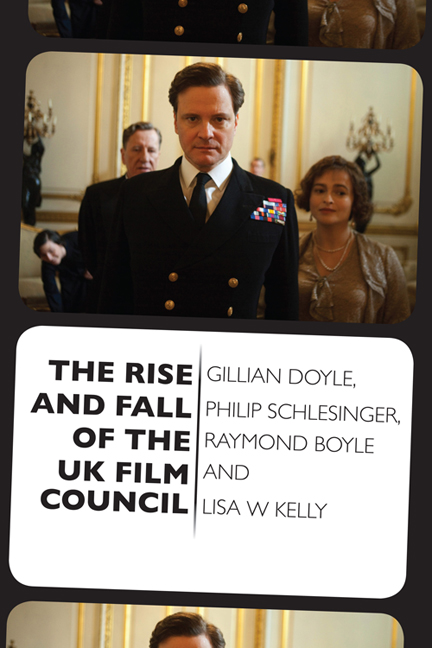Book contents
1 - Why Does Film Policy Matter?
from Part I - Background
Published online by Cambridge University Press: 05 September 2016
Summary
Discussion of film policy, past and present, revolves around three main themes: that Hollywood dominates the market: that the film trade has distinctive economic features, and that the film trade has distinctive cultural characteristics.
(Dickinson and Harvey 2005: 420; emphasis added)This chapter introduces the context within which the UK Film Council (UKFC) was conceived and would operate during its lifetime from 2000 to 2011. It asks: why does film policy matter? In seeking to address this question we analyse some of the key themes and concepts that are developed throughout the book, including the challenge for policy-makers of addressing both the economic and cultural aspirations for the medium of film and the film industry.
In this opening part of our study, we explain why film policy is significant and assess the complex range of objectives surrounding public policy intervention to support film. Later in the chapter, we examine some international models of film support, specifically the French model, and contrast differing approaches, in particular the Hollywood model, towards sustaining national production industries. The final part of the chapter outlines the structure of the book.
Policy as Politics
Film policy does not exist in a vacuum. Throughout this book we argue that the particular political context and culture of the UK has played a key role in shaping aspects of film policy over the years. We concur with Des Freedman who suggests:
There is nothing predetermined about the personality of the media systems to which we are exposed. While the form a media system assumes at any one time is by no means the direct expression of the state's political priorities, it makes little sense to ignore the impact of political actors and political values on the character of the wider media environment. (Freedman 2008: 1)
To that end, the role of politics, both in terms of party politics and in the wider sense of how power is organised in a society, is an important part of the narratives that surround the development of film policy in the UK. Rather than viewing policy formation as a rather dry, technocratic process, we suggest that it is an often highly charged process, involving a range of political actors, stakeholders and lobbying interests.
- Type
- Chapter
- Information
- The Rise and Fall of the UK Film Council , pp. 3 - 22Publisher: Edinburgh University PressPrint publication year: 2015

